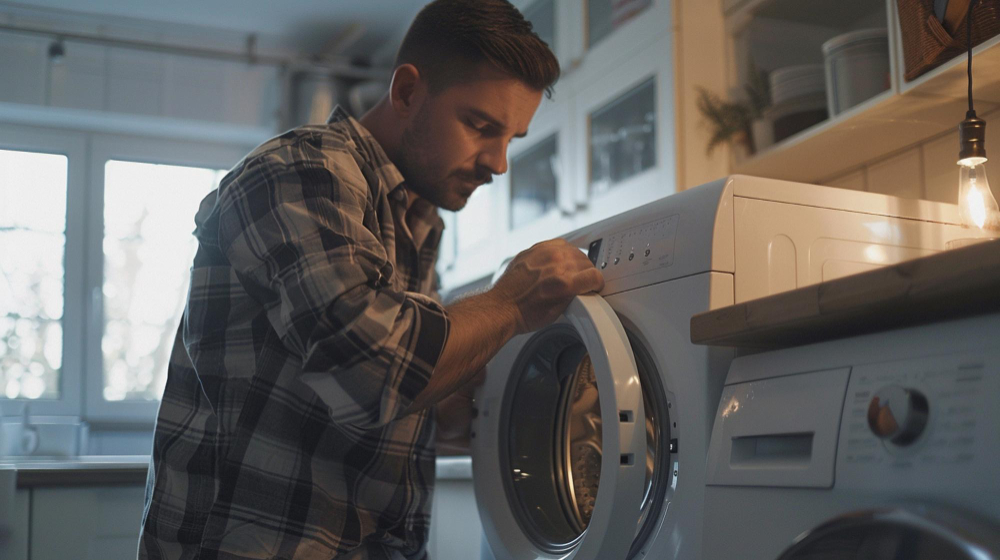
Dryer repair is often the go-to solution when your appliance starts acting up. However, sometimes, avoiding dryer repair and considering other options is best. Explore situations where fixing your dryer might not be the best decision. This guide will help you understand when it's time to repair a clothes dryer or when it's more practical to consider alternatives.
Cost is one of the first things to consider when dealing with dryer repair. If the repair costs are close to or exceed the price of a new dryer, investing in a new appliance might be better. For instance, the cost can skyrocket if your dryer requires a major component replacement, such as the motor or drum. Spending money on a new, energy-efficient dryer could save you money in the long run. Always weigh the repair costs against the potential benefits of buying a new model before deciding.
If your dryer is over 10-15 years old, it likely has outdated technology that is less efficient than modern models. Older dryers consume more energy and may dry your clothes less effectively. Additionally, finding replacement parts for older models can be challenging. Instead of putting money into an outdated machine, consider upgrading to a newer model with better performance and energy savings. A new dryer will be more efficient and come with the latest safety features and technology.
Experiencing frequent breakdowns with your dryer can be frustrating and expensive. If you find yourself calling a repair technician every few months, it's a sign that your dryer is nearing the end of its lifespan. Continually repairing a clothes dryer that frequently malfunctions might not be worth the hassle. In these situations, replacing the appliance can provide peace of mind and save you from the inconvenience and cost of constant repairs.
Safety should always be a priority when deciding whether to repair or replace a dryer. If your dryer is causing electrical issues, overheating, or emitting strange smells, it may pose a safety risk to your home. These issues can lead to fires or other dangerous situations. In such cases, attempting to repair the dryer might not address the underlying safety concerns. It's often safer and more practical to replace the dryer with a new, certified model that meets current safety standards.
Before you proceed with dryer repair, it's important to check if your appliance is still under warranty. If a manufacturer's warranty covers the dryer, it's usually best to utilize the warranty services for repair. However, replacing the dryer might be more economical if the warranty has expired and the repair costs are significant. Warranties often cover only certain parts or labour, so ensure you understand the extent of coverage before deciding on repairs.
Dryer repair can sometimes involve unexpected out-of-pocket expenses. For example, additional costs can arise from labour, replacement parts, and service fees. If these out-of-pocket expenses add up to a considerable amount, replacing the dryer altogether might make more sense. Consider the total cost, including hidden fees, when deciding whether to repair a clothes dryer or opt for a new one.
Older dryers are typically less energy-efficient and can have a higher environmental impact due to their energy consumption. Repairing an inefficient dryer means continuing to use more electricity, which increases your utility bills and contributes to a larger carbon footprint. Replacing your old dryer with a new, energy-efficient model can reduce environmental impact and energy costs. Consider the long-term benefits to your wallet and the environment when deciding.
As dryers age, finding the necessary replacement parts for repairs becomes increasingly difficult. Manufacturers may discontinue parts for older models, or the parts may become expensive and hard to source. If your dryer requires a specific part that is no longer available or is costly, it may not be worth pursuing the repair. In these cases, replacing the dryer with a newer model ensures that you have access to readily available parts for future maintenance needs.
Sometimes, attempting to repair a clothes dryer can lead to more damage, especially if the problem is complex or not easily diagnosed. For example, repairing one component might strain another, leading to additional issues. If there's a risk that the repair could cause further damage, it might be better to replace the dryer instead of risking further costs and complications. Pay attention to warning signs, such as unusual noises or erratic behaviour, which could indicate that more extensive repairs are needed.
Conclusion
Making the right decision about dryer repair versus replacement is crucial for your safety, wallet, and peace of mind. By understanding these nine situations, you'll be better equipped to decide whether to repair a clothes dryer or invest in a new one. Always assess the costs, risks, and potential benefits before moving forward with repairs.
For more tips on appliance repair and maintenance, visit AMP Appliance. We're here to help you make informed choices about your home appliances.
As certified technicians, we repair all major appliance brands. Whether it’s Samsung, LG, Whirlpool, GE, or Bosch, we can fix your appliance.